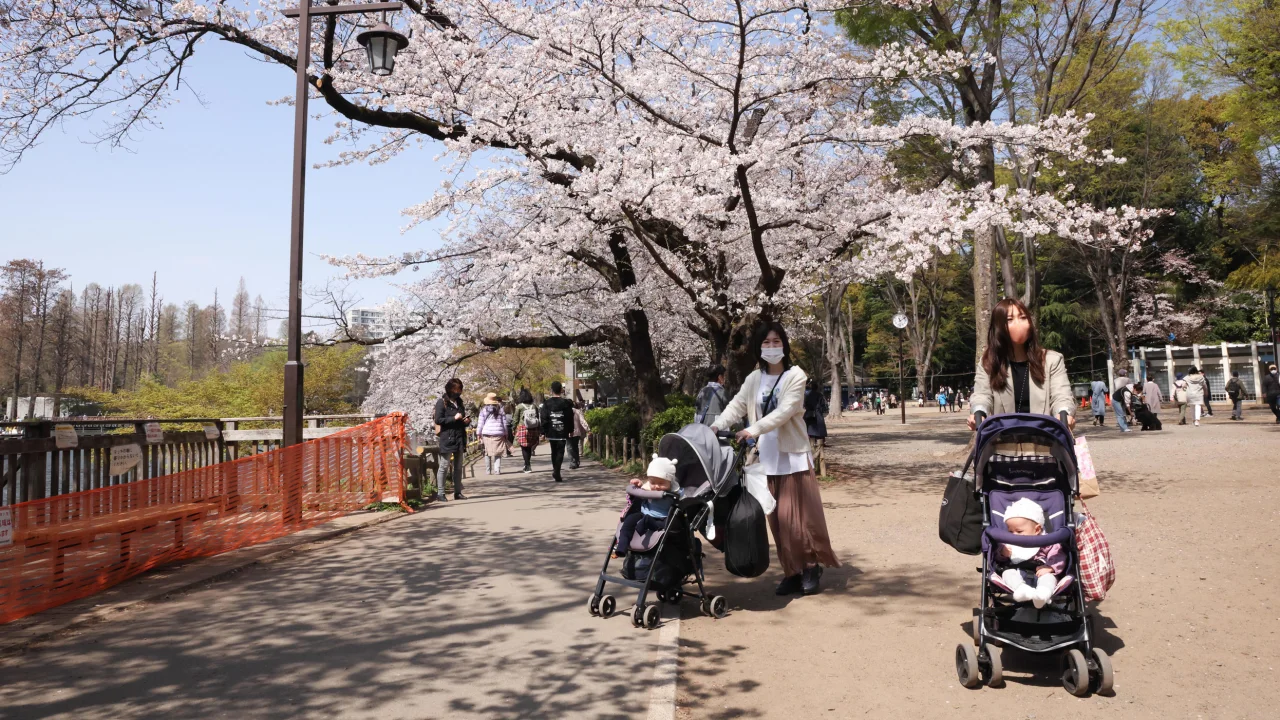Parasite Singles: Japan's Demographic Dilemma at the Heart of Family
Introduction – Who are the "parasite singles"?
At the core of traditional Japanese culture, family plays a pivotal role, serving as a haven of support, tradition, and heritage. However, over recent years, the notion of family and its dynamics have seen significant shifts, primarily due to a phenomenon known as "parasite singles". This term, introduced into the Japanese social discourse in the 1990s, refers to middle-aged adults who, despite being capable of independent living, still reside with their parents and rely on them financially.

Faced with these challenges, Japan is caught in a dilemma of reconciling traditional family values with modern economic and societal realities. The impact of "parasite singles" on Japan's demographic, economic, and cultural landscape is profound, and understanding this phenomenon is key to forecasting the country's future.
Historical Background – When and how did it start?

The bubble economy era in Japan was a time of unprecedented economic growth, optimism, and excessive consumerism. Young individuals believed they would continue the wealth and prosperity that characterized their youth. However, as the bubble burst in the early 90s, many found themselves in dire financial straits, burdened with debts and devoid of future prospects. This, in turn, influenced life choices such as marriage, starting a family, or purchasing a home.
In the face of these challenges, Japanese society began to undergo profound changes. Traditional values and expectations for young people clashed with the new economic reality. On one side stood societal and parental expectations for independence and starting families, and on the other, a reality where many middle-aged individuals still depended on parental support. The "parasite singles" phenomenon thus became not only a symbol of these shifts but also a flashpoint in the debate about the future of Japanese society.
Statistics on "parasite singles"
In Japan, the phenomenon of "parasite singles" affects a broad age group. In 1995, 92.6% of Japanese men and 86.4% of women aged 20-24 were still single, while living in their parents' homes. For those aged 25-29, the numbers were 66.9% for men and 48.0% for women. Surprisingly, among unmarried individuals aged 20-34, only 40% of men and 20% of women lived independently.

Economic factors play a significant role in the rising number of "parasite singles". In large Japanese cities, living costs, such as rent, can reach 150,000 yen (about 1,400 USD at an exchange rate of 105 yen per dollar). For a young working woman with a monthly salary of just 200,000 yen (about 1,900 USD), these costs are challenging. As a result, many young people choose to stay with their parents rather than move out on their own.
Looking at data from other countries, the differences are striking. For example, in China in 1987, only 17.3% of men and 4.1% of women aged 25-29 were single, and in the United States in 1990, 45.2% of men and 31.1% of women respectively. Although many countries have an increasing number of young people delaying decisions about marriage or starting a family, the "parasite singles" phenomenon is especially strong in Japan. While economic and demographic factors are key to understanding the "parasite singles" phenomenon, cultural issues should also be considered.
In Japan, there's a strong tradition of multi-generational families and expectations of parental support for children, even into adulthood. Many parents from the generation that worked during Japan's rapid growth have stable financial situations and own homes, allowing them to support their adult children. As a result, for many young Japanese, staying at their parents' home is not seen as negative but as a practical and sensible solution.
Causes of the increase in "parasite singles"
After the so-called "economic bubble" burst in the 1990s, Japan experienced economic stagnation, bringing many economic difficulties for younger generations. This stagnation led to a significant increase in unstable job positions. Employment in the form of part-time work, temporary contracts, or short-term contracts became the norm, especially for young people entering the job market.

Traditionally in Japan, it is believed that children should live with their parents until they get married. In the past, this situation was the norm and seen as a sign of family care for their offspring. For many parents from the generation that experienced Japan's economic boom, supporting adult children is a natural extension of their caregiving role. Therefore, many people see no problem in staying at their parents' home and taking advantage of their financial and domestic support.
Modern Japan is a society full of pressures and expectations, exerted both by the family and the community. Young people often feel overwhelmed by the pressure to achieve professional and personal success. At the same time, many unmarried men and women in their 50s feel strong societal pressures, viewing them as individuals who have not met societal expectations. Such pressure can deter them from leaving their parents' home, especially if independent living is seen as a path of social outcast.

Testimonies and Life Examples
Hiromi Tanaka's Story: Hiromi Tanaka is a 54-year-old woman from Tokyo who, despite her advanced age, still lives with her 82-year-old mother. She works as an editor for a local magazine and earns enough to support herself, but the choice to live with her mother is one of convenience, emotional support, and tradition. "I don't feel the need to move out. In our home, there has always been a tradition that the family stays together," says Hiromi. She adds that the societal pressure regarding independent living of adult children doesn't affect her as much as the younger generation. For Hiromi, living with her mother is also a way to care for her in her old age.
Yuki and Traditional Values: Yuki, a 29-year-old engineer from Osaka, explains that although he earns enough to live on his own, he chooses to live with his parents for economic and emotional reasons. "I earn enough, but why would I waste money on rent when I can live with my parents and save for the future?" he rhetorically asks. Yuki also emphasizes that living with his parents allows him to build a deeper relationship with them, which is important to him in the context of traditional Japanese family values.
Satsuki and Social Pressure: Satsuki, a 35-year-old woman working in the fashion industry in Tokyo, is often referred to as a "parasite single" by friends and family. Although initially uncomfortable with the label, she has come to accept it and now views her situation from a different perspective. "Yes, I live with my parents. But that doesn't mean I'm lazy or not independent. In today's times, facing rising living costs and job instability, it's a rational choice," says Satsuki. Her story demonstrates that despite societal pressures, many "parasite singles" make informed life decisions that best suit their individual circumstances.
Social and Political Reactions
T
In Japanese society, the topic of "parasite singles" evokes many emotions. Many Japanese believe it's a transitional phenomenon associated with economic difficulties and changes in traditional values. However, there's a group of people who criticize "parasite singles," seeing them as a symbol of the younger generation's selfishness. Media often feature comments accusing them of lacking responsibility and reluctance to face adult challenges.
On the other hand, there's an increasing voice in Japanese society defending young people's rights to choose their life path. They emphasize that societal and economic pressures are so vast that many young individuals have no choice but to remain with their parents. They also argue that the "parasite singles" phenomenon is a result of broader societal and economic problems, not individual choices.
Role of 'Parasite Singles' in Tomorrow's Japan Vision?
The "parasite singles" phenomenon is one of the most debated topics in Japan in the context of the demographic crisis. It's a symbol of deeper cultural, social, and economic changes occurring in Japanese society. Despite many attempts to address this issue, both individually and at the state level, it remains one of the country's most significant challenges.
Demographic forecasts for Japan are not optimistic. If current trends continue, the country's population will shrink, and society will age at an alarming rate. This will impact all aspects of life, from the economy to healthcare. "Parasite singles" might contribute to a further decline in birth rates, consequently accelerating societal aging.
Reflecting on Japan's future facing this phenomenon, it's evident that the nation is up against one of the biggest challenges in its history. Many experts believe the only way out is a radical change in thinking about family, marriage, and tradition. Japan needs to find a way to adapt to a new reality where traditional values and expectations are questioned while preserving its cultural and social identity. One thing is certain: the future of "parasite singles" will significantly influence Japanese society's shape in the 21st century.
"Strong Japanese Women"
see book by the author
of the page
未開 ソビエライ
An enthusiast of Asian culture with a deep appreciation for the diverse philosophies of the world. By education, a psychologist and philologist specializing in Korean studies. At heart, a programmer (primarily for Android) and a passionate technology enthusiast, as well as a practitioner of Zen and mono no aware. In moments of tranquility, adheres to a disciplined lifestyle, firmly believing that perseverance, continuous personal growth, and dedication to one's passions are the wisest paths in life. Author of the book "Strong Women of Japan" (>>see more)
Personal motto:
"The most powerful force in the universe is compound interest." - Albert Einstein (probably)
Mike Soray
(aka Michał Sobieraj)
未開 ソビエライ
An enthusiast of Asian culture with a deep appreciation for the diverse philosophies of the world. By education, a psychologist and philologist specializing in Korean studies. At heart, a programmer (primarily for Android) and a passionate technology enthusiast, as well as a practitioner of Zen and mono no aware. In moments of tranquility, adheres to a disciplined lifestyle, firmly believing that perseverance, continuous personal growth, and dedication to one's passions are the wisest paths in life. Author of the book "Strong Women of Japan" (>>see more)
Personal motto:
"The most powerful force in the universe is compound interest." - Albert Einstein (probably)
Mike Soray
(aka Michał Sobieraj)
Write us...
Ciechanów, Polska
dr.imyon@gmail.com
___________________
inari.smart
Would you like to share your thoughts or feedback about our website or app? Leave us a message, and we’ll get back to you quickly. We value your perspective!


